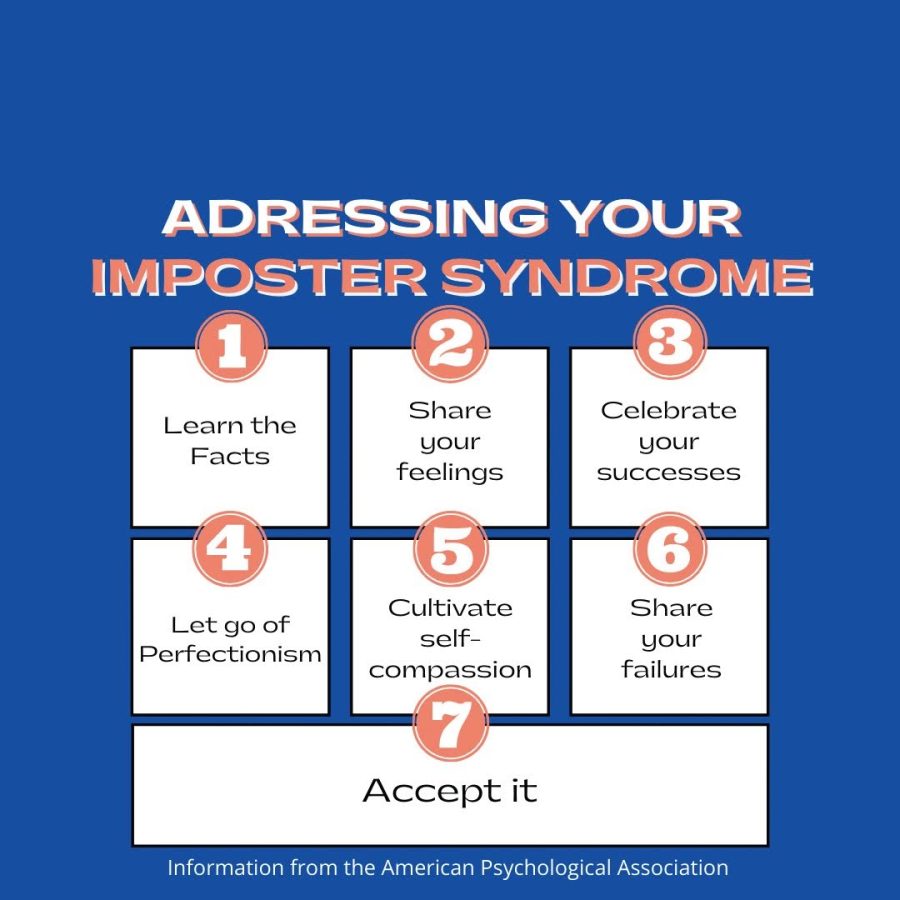What you should know about imposter syndrome
Imposter syndrome, otherwise known as the imposter phenomenon, is prevalent in high-achieving people, specifically women, and among college students. The syndrome is loosely defined as “doubting your abilities and feeling like a fraud.”
To put it into perspective, students, especially around the U.S., may question whether they deserve some of the accomplishments they have or they may wonder how they can live up to the expectations of others.
Imposter syndrome was first mentioned in 1978 by a Georgia State University psychology professor, Pauline Clance and her colleague Suzanne Imes. It was recognized during a study of high-achieving women. It is important to note that the women in this study were at odds with themselves, and that prevented them from being able to internalize and accept all of their achievements.
Further research into the condition determined some of the risk factors. Although the syndrome is not officially on the Diagnostic and Statistical Manual of Mental Disorders, it is widely acknowledged by psychologists and counselors across the nation. These factors include personality traits such as perfectionism, and can be heavily influenced by family background and early development. It can more commonly be seen in children who come from families who place a priority on achievement and success.
In terms of college students, the syndrome can take multiple forms, including self-doubt, a lack of self-confidence, or the belief that all achievements or accolades came by accident. Second-guessing yourself in class, and convincing yourself that there is no chance that your answers could be correct when completing work is considered a sign of the syndrome in college students.
In order to overcome this phenomenon, there is more that needs to be done with how society expresses their opinions about younger generations. In the majority of cases where imposter syndrome was studied, it was observed that the syndrome is mostly brought upon a college student, or a high-achieving woman, as a means of further enforcing societal beliefs and standards. This, of course, although being an extremely outdated and misinforming cause, can play a massive role in how one perceives oneself and others. Focus on confronting one’s inner thoughts, and rephrasing how they speak to themselves is essential when trying to overcome imposter syndrome.
Why could this be important to you? Imposter syndrome is not often taught to the populations of people that it is shown to affect. Many may feel lost and unable to come to terms with their achievements and even feel disappointed in their lack of gain. It is important to remember that there are many people who also struggle with this phenomenon.
If you or somebody you know has shown signs of imposter syndrome, contact the Counseling and Psychological Services (CAPS) located in Charger Plaza.








